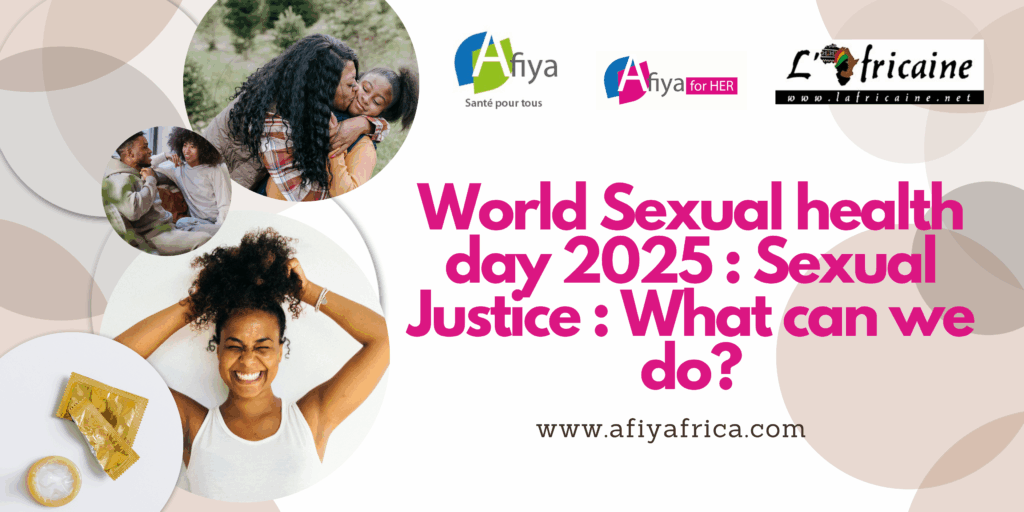September 4: A Day to Speak the Truth
World Sexual Health Day, established by the World Association for Sexual Health (WAS), aims to promote a positive, inclusive, and respectful approach to sexuality. In 2025, the theme “Sexual Justice” invites everyone to reflect on what we can do to guarantee equitable access to sexual and reproductive rights.
🌍 What is at stake in Africa?
Sexual health remains a sensitive subject, often surrounded by silence, stigma, and rigid cultural norms. Yet the numbers speak clearly:
Only 33% of women in sub-Saharan Africa use a modern contraceptive method
The unmet need for family planning is the highest in the world: 21%
Child marriage, female genital mutilation, and sexual violence remain harsh realities for millions of girls
🩺 Multiple obstacles
Lack of sexual education in schools
Limited access to health services in rural areas
Religious and cultural taboos that hinder dialogue
Lack of awareness of sexual rights among young people and women
> “Sexual health cannot be a privilege. It must be a right, accessible to everyone.” — Dr. Jeanne Diaw, sexologist
✊ Initiatives that make a difference
Fortunately, change is emerging:
Safe spaces for out-of-school adolescent girls, such as the Illimin Zaman Dunia program in Niger
Community trainings on consent and STIs
Regional frameworks, such as the Maputo Protocol, which recognizes the sexual and reproductive rights of African women
💡 What Afiya For Her proposes
For this day, we are launching:
A digital campaign #SexualHealthAfrica
A podcast raising awareness on sexual health
A practical guide on sexual rights in Africa
Sexual health in Africa must no longer be a shameful or marginalized subject. It lies at the heart of women’s dignity, autonomy, and well-being. On this World Day, Afiya For Her is committed to amplifying the voices of those who are too often unheard, and to transforming taboos into knowledge, silences into action.







OTHER ARTICLES
Strengthening pandemic prevention, preparedness, and response capacities in Senegal using the “One Health” approach
Africa Health Brief
Sex, Gender, and Medicine: Understanding Errors in Sex Assignment